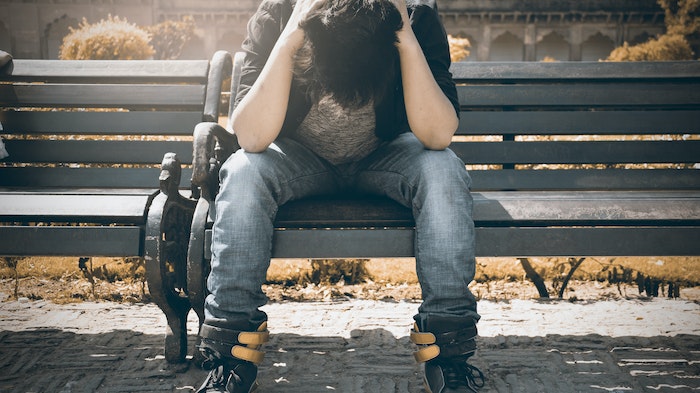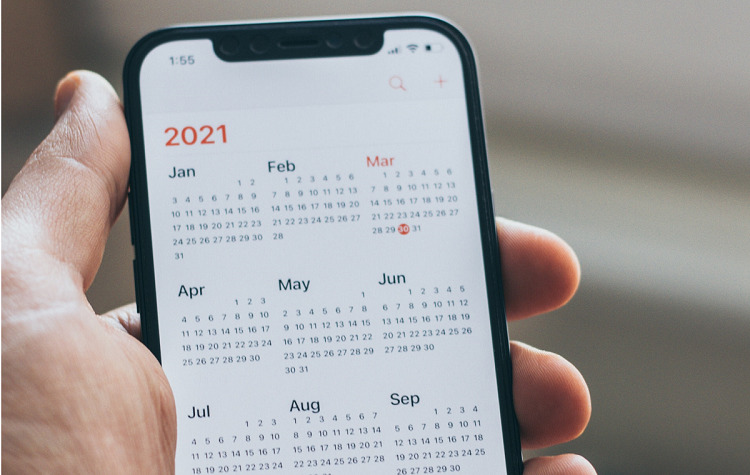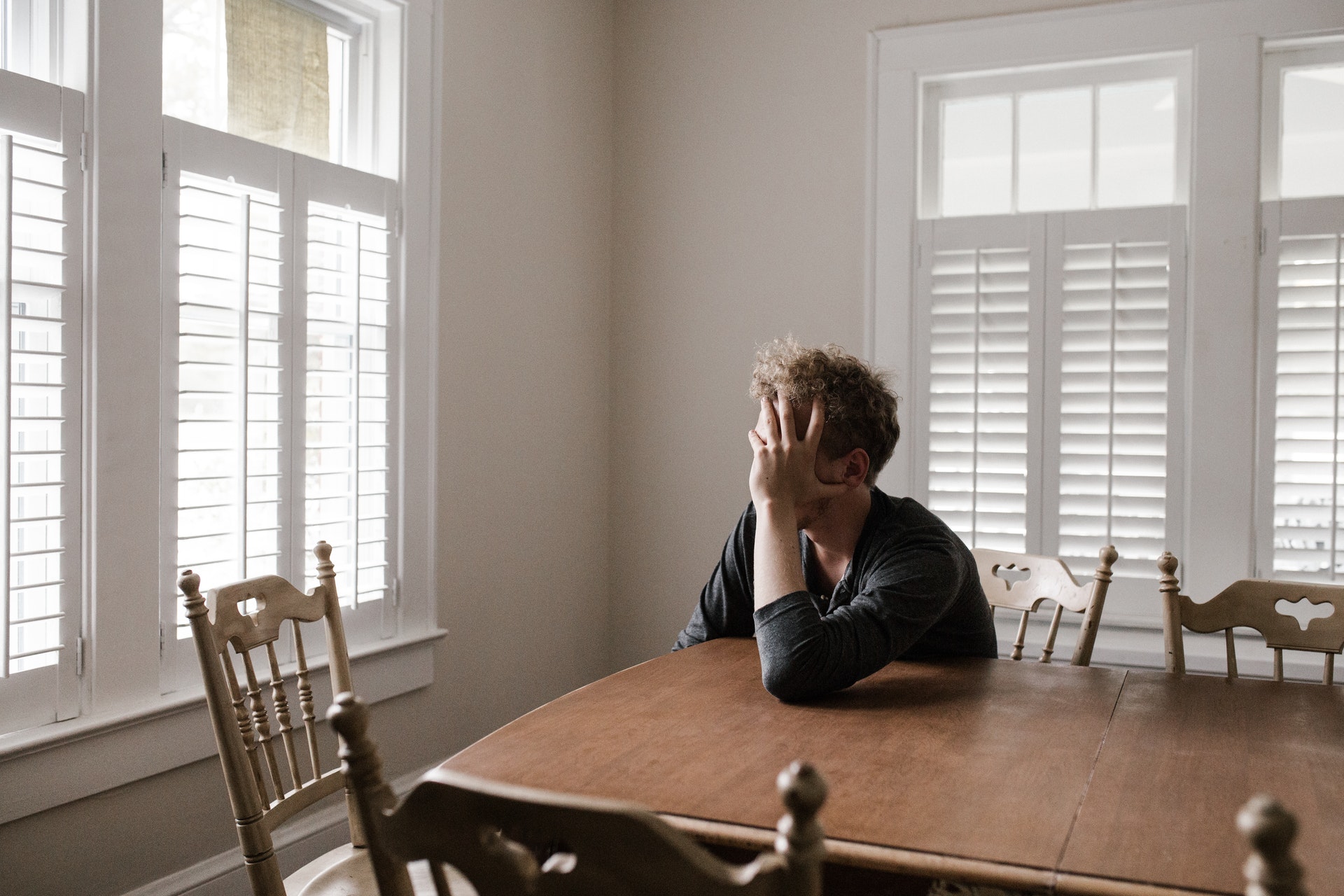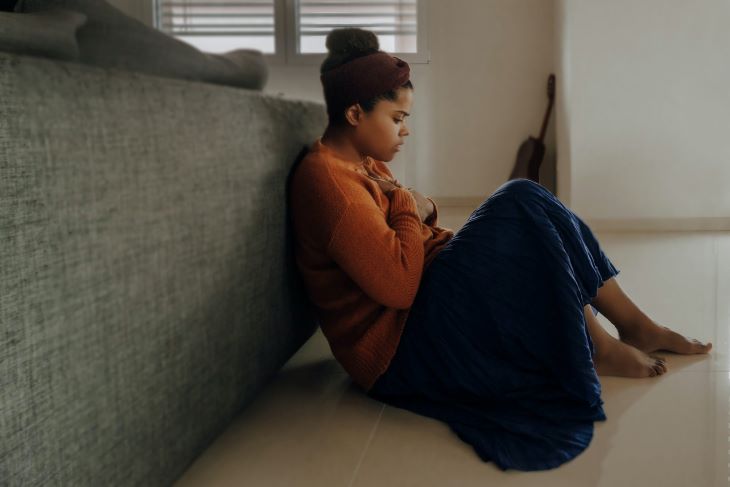Benzodiazepines are often utilised in the fight against common mental health disorders. These disorders include panic attacks, anxiety, and insomnia.
It is estimated UK GPs dispense around 10 million benzodiazepines prescriptions each year. It’s thus not surprising to hear that benzodiazepine addiction is on the increase.
By far the most common types of Benzodiazepines prescribed in the United Kingdom is Diazepam, Alprazolam and Lorazepam.

Benzodiazepines are sedative drugs that are primarily prescribed by doctors for patients with anxiety or insomnia, although they have been used to treat muscle spasms and are also used in alcohol detox treatment. (5,10)
Benzodiazepines are potentially highly addictive drugs as some of them are fast acting, meaning they take effect quickly.
The consequence of this is that patients can build up a tolerance to them quickly as their effectiveness diminishes after a couple of weeks and patients will then need to take stronger doses to obtain the effects they were looking for.
Medical professionals state that benzodiazepines should not be taken for longer than 3-4 weeks however this does not stop some people from attempting to obtain it through other avenues other than their GP, or changing doctors until they find one sympathetic to their needs. (5,12)

The following symptoms and behaviours are commonly associated with Benzodiazepine addiction:
The more symptoms and behaviours from the above list that people exhibit the greater their addiction to benzodiazepines and the more important it is that they should seek professional medical help. (1,2,6)

There are no established treatment protocols for patients addicted to drugs from the benzodiazepine class, the treatment protocol covers four main areas, these include:

Careful thought and caution should be shown when arranging a detox schedule for benzodiazepines and the whole process should be carried out gradually.
Anyone who stops taking Benzodiazepines suddenly after using the drug for one month or more is vulnerable to experiencing a life-threatening and life-limiting seizure.
This is because benzodiazepines, like alcohol, are central nervous system depressants and people who have been taking the drug for longer will find that their brain has adapted to the presence of the drug and so withdrawing suddenly from using the drug can lead to sudden and erratic changes in certain brain mechanisms that may cause seizures.
Research has indicated that between 25 – 30% of people with benzodiazepine dependence who do not engage in treatment will experience a grand mal seizure.
It is essential for medical practitioners to gather as much information as possible about the client to help determine their dose schedule and how long it will last. (4,5,6)

NHS specialists are confident that the treatment protocol for helping patients recover from benzodiazepine addiction is reliable as it is established from a strong evidence base.
Studies have shown that the success rate can be very high if the patients recovering are supported right throughout their treatment and that the consequences and issues that arise due to long-term benzodiazepine use are fully explained to them.
Even patients who have been taking benzodiazepines for over a year are, over time able to successfully come off the drug. (4)

The decision regarding where the patient’s treatment takes place depends on the information gathered in the initial assessment carried out to assess the patient’s treatment needs.
Generally, any patients requiring treatment for long-term, high-dose dependence would be directed towards receiving treatment at a residential rehab service and patients who require care for short-term, low-dosage withdrawal would be deemed suitable to follow an outpatient programme.
However, other factors may be considered when assessing whether a patient should receive inpatient or outpatient care. These include:

The first task facing medical practitioners is to assess the client, which includes noting aspects of their medical, psychological, social and family history.
The assessment stage is a vital part of the process and it is important to gather all this key information to assess the patient’s level of dependence and enables doctors to assess if they are at risk of further harm or relapsing at any stage of treatment.
During this assessment it is important to gather information on:

Practitioners overseeing patients’ recovery have the option of organising a drug schedule for the client or placing them on a maintenance treatment programme.
Medical practitioners are required to assess whether patients are low or high risk in terms of causing themselves significant harm or in relapsing back into using the drug.
Patients deemed as low risk will be considered suitable candidates to withdraw from the drug with standard medical detox treatments.
Those considered high risk would be more likely to enter a period of stabilisation before commencing a specially designed benzodiazepine maintenance programme which they may be on for a long time. (4,14)

The concept of tapering is at the heart of treating a patient’s benzodiazepine dependence.
The process involves slowly weaning a patient of their current medication to slowly remove the presence of the drug from their body and to alleviate any unpleasant withdrawal symptoms that may appear as they seek to limit their over-reliance on the benzodiazepine. (14)

A standard method of carrying out detox involves using another benzodiazepine as a substitute drug to taper patients off the benzodiazepine they have been addicted to.
The drug most commonly used for this purpose is diazepam as it has a much longer half-life and is therefore a much slower-acting drug than the benzodiazepine they have become addicted to.
It is standard practice in the medical community to switch patients to a dose of diazepam to begin the tapering stage. (11)

This is because it is a slow-acting drug and is easy to convert the dose sizes of most other benzodiazepines into an accurate equivalent dose of diazepam.
So regardless of which benzodiazepine a patient has become addicted to, doctors are easily able to assess the starting dose size of diazepam for the patient to start on, and more importantly, control how these doses will be reduced as the weeks go by.
Research does suggest that far fewer patients pull out of treatment if they are using a longer-acting benzodiazepine as part of their detox. (14)

The approach to tapering patients off benzodiazepine drugs very much depends on the type of benzodiazepine that the patient has been dependent on.
Many patients prefer not to use diazepam (Valium) as they have negative perceptions of the drug, and prefer to stick with the drug they have been taking and taper their daily dose of that drug down gradually if the doctor or psychiatrist agrees.
Some patients who are dependent on oxazepam and lorazepam however definitely need to switch to diazepam during their treatment because these drugs have short half-lives and it will eventually be difficult for these drugs to alleviate withdrawal symptoms sufficiently over the long term. (15)

The NHS recommends that any doctors guiding patients through detox from benzodiazepine drugs should plan the treatment schedule gradually over a long period.
The detox treatment can be mapped out from three months to one year depending on the severity of the patient’s addiction and how long they have been taking the drug.
Gradually reducing the amount of the drug in the patient’s body means that the blood levels of the benzodiazepine will slowly fall over time which will ensure that the withdrawal symptoms patients will experience will be eradicated or kept to a minimum.
If the level of benzodiazepine in the blood drops too quickly the withdrawal symptoms patients experience can be very intense. (3,5)

Medical studies have shown that withdrawal should be carried out over a period of 10-12 weeks for patients to have a chance of achieving long-term abstinence.
However, there are many different factors to consider and each patient is unique, and medical practitioners must make their recommendations after considering all aspects of a patient’s life.
It may be that some patients need to be weaned (tapered) off the benzodiazepine for 6-8 months or even longer, and some patients may take over a year to come off the drug. (5,14)

The length of time it takes to detox is dependent on several factors, although one thing is certain it will take a minimum of 10-12 weeks as a best-case scenario and over a year in the worst-case scenario.
The length of time detox takes depends on:

Because benzodiazepines are powerful, sedative drugs anyone going through withdrawal treatment can experience significant, unpleasant and bizarre symptoms, the range and type of which can differ between people. The range of symptoms includes;

When taking benzodiazepines patients tend not to dream because of the effect the drug has on their REM sleep, so when going through detox patients will find they will begin dreaming again as the amount of the drug in their system decreases.
This can lead to them having emotionally charged dreams relating to the fears surrounding their underlying condition (anxiety, addiction and insomnia) which can be quite vivid and powerful.

Some people have reported experiencing panic attacks when withdrawing from the drug. This could be caused by their reaction to changes in the levels of adrenaline produced by the body caused by the decreasing amounts of the drug in the body. These changes can cause hyperventilation which can cause the patient to panic.

This could include patients either not having the mental or physical energy to go outside or they do not want to go out anywhere. However, as time passes the phobia gradually disappears and the person is soon back to how they previously were.
Most patients suffer from muscular aches and pains over the withdrawal period and the severity and location of the aches will vary between patients but many of these aches and pains can be treated comfortably with over-the-counter medicine.

Due to individual responses to withdrawal, some patients may experience a burning-like sensation and feel hot and therefore sweat a lot, whereas other patients may feel extremely cold.
Some patients may suffer from uncomfortable symptoms related to their sinuses, this is a result of their nasal passages become irritated and inflamed in response to physical mechanisms activated by a drop in the amount of benzodiazepine in the body. (4,13,15)

They also have all the information recorded regarding the dose strength and the length of time you have been taking the drug. (4,14)

People who take benzodiazepines to help them sleep may benefit from receiving advice, information and guidance about improving their sleep quality.
They may need to carefully consider aspects of their lifestyle that contribute to their poor sleep and make adjustments to ensure they can improve the quality and duration of their sleep, examples of this could include diet, stress levels and changing their work patterns.

The same applies to patients who take benzodiazepines for anxiety, it is important patients for patients prone to anxiety to seek other solutions to their anxiety rather than rely on drugs.
Patients in this category should be supported in exploring stress management techniques and contemplating various lifestyle factors that may be contributing to their anxiety.

Engaging in a programme of psychological and social therapies (both individually and in groups) can be a vital resource in helping patients in the build-up to detox treatment, during treatment and after treatment.
Engaging in therapy will help prepare patients for the challenge ahead and help them deal with any day-to-day emotional crisis that may occur during this time.
Therapists will help patients develop psychological strategies to deal with any unexpected situations that may arise so that they have the coping skills to deal with the emotional fallout from the situation rather than take benzodiazepines to help them cope.
Research has indicated that there is a higher far success rate for patients who complete both detoxes for benzodiazepine addiction, and follow a programme of tailored counselling or psychotherapy than those patients who just receive detox alone.
Once the detox treatment is up and running and the patient is stabilised they are encouraged to engage with a range of psychological therapies to help work on the root causes of their underlying problem whether it is anxiety or insomnia.
Psychological therapies also provide patients with important psychological skills to avoid relapsing. (4,13,15)

There are several forms of therapy available to support patients seeking to recover from benzodiazepine addiction, the therapies they receive will depend on the outcome of their assessment.
Some of the common therapies used include:
CBT may be helpful to get patients to change their irrational and unhelpful beliefs about their benzodiazepine use, they may for example feel that they cannot relax or sleep without the drug.
By engaging in CBT the therapist will be able to help the patient question this belief and start to realise there are other options open to them to help reduce their anxiety or sleep better. (7,9)
DBT helps patients regulate their emotions more efficiently as addiction is a condition that generates a lot of powerful feelings so the DBT therapist will be able to teach the patients new strategies they can use each day to stop them from being overcome by stressful situations and overwhelming feelings. (3,7)
Group therapy is very helpful for helping participants understand their internal psychological processes and their social behaviour which can offer them important insight into themselves.
It is also beneficial as it allows everyone in the group to talk about their feelings and experiences in the presence of people who have been through similar challenges and experiences.
This helps build connections between members and makes them feel part of a supportive, cohesive group which is a vital resource in recovery. (7)
Addiction counselling sessions will help patients explore the psychological and emotional factors and life experiences that may have caused them to be prescribed benzodiazepines in the first place.
By exploring these the client may be able to process them fully which will help them to move forward in their treatment. (7,9)
MI is an important therapeutic tool for substance misuse practitioners to use to persuade patients that they should engage in treatment for their addiction to benzodiazepines and is also helpful along the patients’ treatment pathway, particularly if they encounter psychological barriers that may reduce their commitment to treatment. (8)

It is important for patients to still stay in touch with medical services and take advantage of their aftercare service, and continue with their counselling sessions after their detox treatment has finished ensuring that they do not relapse back into relying on benzodiazepines again.
If patients are struggling at any time after completing detox there are support options in place to check in with a medical professional who can advise you on your options and recommend the next course of action.
Attending support group meetings can help maintain recovery as it helps to talk about your experiences and feelings in the company of people who face similar challenges.
Narcotics Anonymous is an offshoot of the AA and offers a supportive environment for people struggling with drug addiction and there are regular weekly meetings held throughout the country. (3,14)

Medical practitioners and rehab services feel that regular contact with the family of the patient helps the treatment process run smoothly and always seek to keep relatives up to date with aspects of their loved one’s treatment, offer reassurance and answer any questions they may have.
There are established practices in place to ensure family members are kept informed and emotionally supported during their relative’s time in care as it is a long process that can take over a year and may include setbacks along the way. (3,14)

The National Institute for Clinical Excellence has laid down several guidelines for medical practitioners to consider when organising detox treatment for patients with benzodiazepine addiction, these include;
It is preferable to organise an adaptable detox schedule. Wherever possible, medical professionals should seek to discuss the treatment schedule with the patient to check they are happy with the treatment and that they are capable of adhering to the recommended plan. (11)

Undergoing benzodiazepine withdrawal is potentially fatal due to the risk of suffering from a seizure/convulsion. This means it’s essential to undergo a medically assisted benzodiazepine detox programme.
When you undergo a medically assisted benzodiazepine detox, your dose of benzodiazepines is slowly tapered down at a safe rate.
Tapering allows the brain to readjust at a safe and manageable rate. A tapering regime will usually run over a four week period. Some people may require a longer-term tapering programme.
You may also be prescribed with anticonvulsant medications to assist you through the detox process.
Whilst undergoing a medically assisted detox is vital, it’s also important for you to receive therapy. Therapy aims to treat the mental causes of benzodiazepine addiction.
Specifically, therapy helps you to identify and overcome addiction triggers linked to benzodiazepine abuse. You will also benefit from attending highly educational workshops that inform you about the science of benzodiazepine addiction.

If it is obvious that your benzodiazepine dependency is causing you to struggle with the demands of everyday life, then it’s probably time for you to reach out for professional addiction treatment at a residential rehab clinic.
Benzodiazepine addiction affects both your psychical and mental well-being and most vitally, benzodiazepine addiction does kill.
It’s thus important to never underestimate the consequences of allowing your benzodiazepine addiction to persist indefinitely.
Benzodiazepine addiction treatment taking place at a rehab clinic will fully address all aspects of your addiction and any underlying mental conditions you are experiencing.
Rehab for benzodiazepine addiction will begin with detox and then progress to a full rehabilitation programme. You may be prescribed a substitute drug during your detox to treat withdrawal symptoms. Doing so makes your benzodiazepine detox much more bearable.

To learn about benzodiazepine addiction treatment, contact Rehab 4 Addiction today on 0800 140 4690.
Alternatively, contact us through this website and a member of our team will return your call shortly.
(1) American Psychiatric Association (2013) Diagnostic and Statistical Manual of Mental Disorder (5th Version). American Psychiatric Association Publishing. The USA.
(2) Black, D., Grant, J. (2013) DSM5 Guidebook: The Essential Companion to Diagnostic and Statistical Manual of Mental Disorders, 5th Edition. APP. London.
(3) Brett, J., Murnion, B. (2015) Management of Benzodiazepine misuse and dependence. Australian Prescriber, 38 (5) p152-155. available@Management of benzodiazepine misuse and dependence – PMC (nih.gov)
(4) Cambridgeshire and Peterborough Clinical Commissioning Group NHS (2021) Coming off Benzodiazepines and “Z” drugs: A guide for patients. Available onlinegetresource. and (cambridgeshireandpeterboroughccg.NHS.UK)
(5) Ghodse, H. (2002) Drugs and Addictive Behaviour: A guide to treatment Cambridge University Press.
(6) Kahan, M. (2014) Physical Effects of Alcohol and Other Drugs. In Here, M. & Skinner, W. (ed) Fundamentals of Addiction: A Practical Guide for Counsellors. CAMH. Canada
(7) Lewis, J, Dana, R., Blevins, G.(2002) Substance abuse counselling. Brooks Cole, London.
(8) Miller, W. & Rollnick, S. (1991) Motivational Interviewing: Preparing to Change Addictive Behaviour. Guilford Press. New York.
(9) Moss, A, Dyer, K (2010) The Psychology of Addictive Behaviour. Palgrave McMillan. New York.
(10) NHS (2021) Temazepam: A medicine to treat sleeping problems. Available online@Temazepam: a medicine to treat sleeping problems (insomnia) – NHS (www.nhs.uk)
(11) National Institute for Health and Care Excellence (2019) Benzodiazepine and Z drug Withdrawal Available online benzodiazepines
(12) Newton, D.E. (2016) Prescription Drug Abuse. ABC-CLIO California.
(13) Southend Clinical Commissioning Group NHS (2021) Withdrawal of Benzodiazepines available@file (Southend CCG.nhs.UK)
(14) Wales NHS (2021) Hypnotics and Anxiolytics Practice Guide. Available online @Guide_Hypnotics & Anxiolytics Practice Guide_version02.pdf (wales.NHS.uk)
(15) Wirral NHS (2021) Benzodiazepine Withdrawal. Available online@BenzoWithdrawalGuidance.pdf (Wirral.NHS.uk)